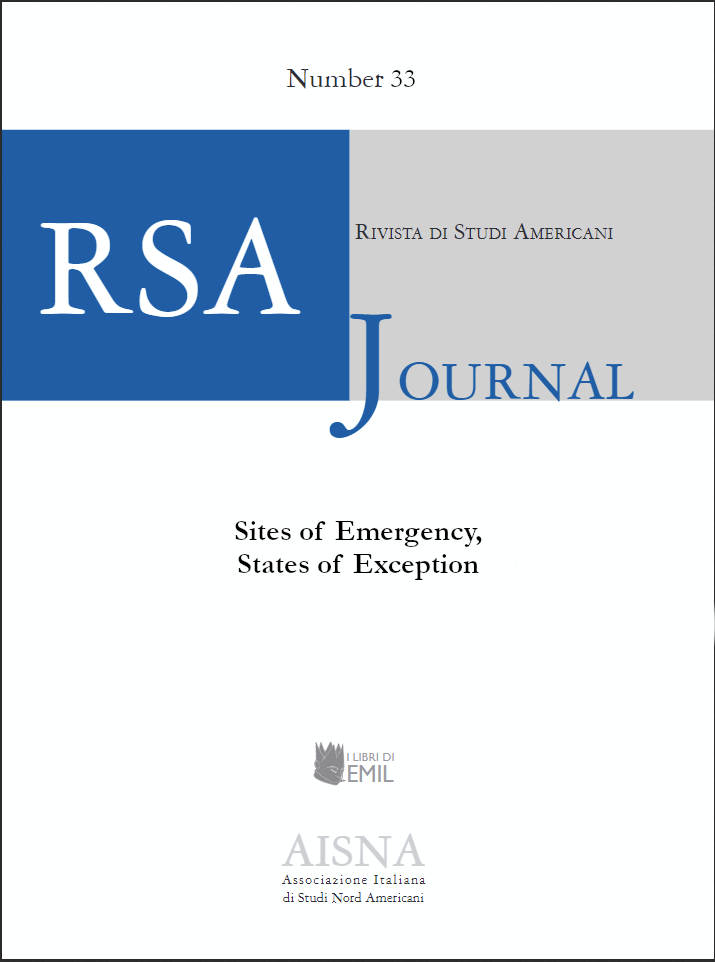“The Least Worst Place”
Guantánamo in the US “War on Terror”
DOI:
https://doi.org/10.13135/1592-4467/8423Keywords:
War on Terror, Guantánamo, jurisprudenceAbstract
“The least worst place” in the world to hold “unlawful combatants,” in Secretary of Defence Donald Rumsfeld’s words, the military detention camp within the US naval base at Guantánamo Bay stands out as the epitome for the primacy of national security over due process, habeas corpus, and the safeguard of human rights in Washington’s “War on Terror.” Since late 2001, in the eyes of the federal administration, GITMO has enjoyed the double benefit of being under US jurisdiction but in a foreign country, which has enabled Washington’s personnel to be in control but has also allegedly exempted them from applying US laws. As such, though not without precedents, the existence of GITMO, along with the related indefinite confinement without trial and resort to torture of prisoners, points to the blatant inconsistency between, on the one hand, the US longing for global leadership in the promotion of freedom and the enforcement of the rule of law and, on the other, Washington’s failure to protect these values in times of national emergency. Drawing mainly upon the rulings by the US Supreme Court on previous and coeval cases, this article reconstructs how jurisprudence initially supported Washington’s arrogant and go-it-alone style in waging the “War on Terror” by crushing the Guantánamo inmates’ most basic rights, too. It also highlights how political expediency has subsequently interfered with the slow inroads of due process and habeas corpus into GITMO.
Downloads
Published
Issue
Section
License
RSAJournal applies a CC BY-NC-ND license to all its contributions. This license enables reusers to copy and distribute the material in any medium or format in unadapted form only, for noncommercial purposes only, and only so long as attribution is given to the creator. CC BY-NC-ND includes the following elements:
- BY: credit must be given to the creator.
- NC: Only noncommercial uses of the work are permitted.
- ND: No derivatives or adaptations of the work are permitted.
Authors who publish with this journal agree to the following terms:
- Authors retain the copyright and full publishing rights for their submissions to the journal.
- Authors grant the journal right of first publication with the work simultaneously licensed under a Creative Commons Attribution-NonCommercial-NoDerivatives 4.0 International License that allows others to share unedited work for non-commercial purposes with an acknowledgement of the work's authorship and initial publication in this journal.
- Authors are able to enter into separate, additional contractual arrangements for the non-exclusive distribution of the journal's published version of the work (e.g., post it to an institutional repository or publish it in a book), with an acknowledgement of its initial publication in this journal.




